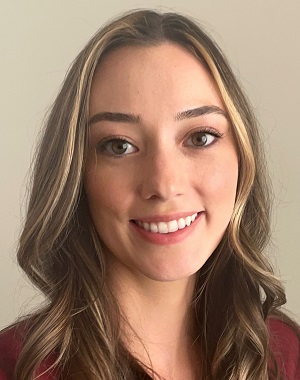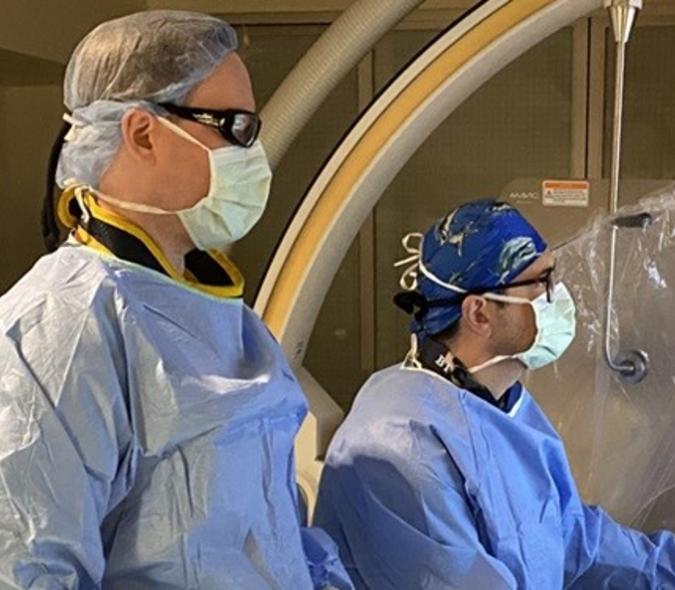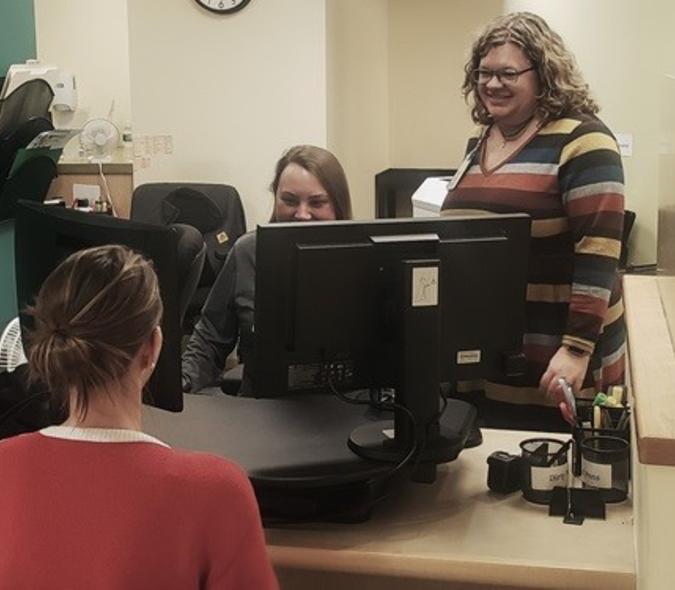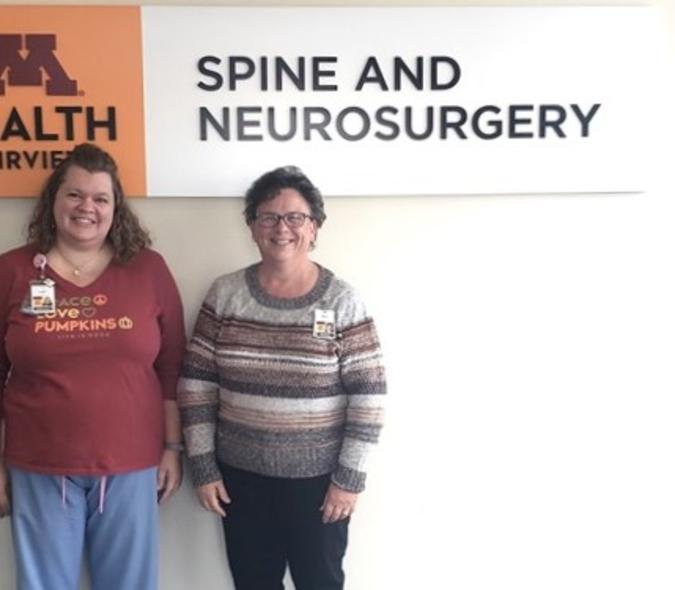
Department welcomes two new Physician Assistants
According to the American Association of Physician Assistants (PAs), “PAs are licensed clinicians who practice medicine in every specialty and setting. Trusted, rigorously educated and trained healthcare professionals, PAs are dedicated to expanding access to care and transforming health and wellness through patient-centered, team-based medical practice.”
The Neurosurgery Department welcomed two new physician assistants in 2022, Tammy Estrem, PA-C, in mid-August, and more recently, Lily Whiteside, MS-PA, in early November.
Tammy Estrem

Tammy took an interesting path to becoming a PA. She spent about 15 years as a legal assistant before deciding to explore a healthcare career. “My mom was a nurse, so I always had an interest in medicine,” she said. “I did some nursing assistant work and liked helping patients. With my church, I went on some Haiti missions and fell in love with the medical side of things.”
Tammy graduated in 2018 from the Master of Science Physician Assistant Program at Bethel University in St. Paul, MN. She believes that her experience as a legal assistant helps her in her new career. “It enables me to be a good listener and has prepared me for the fast pace and multitasking that is part of being a healthcare provider,” said Tammy.
Neurosurgery was attractive to Tammy because she enjoyed the surgery rotation during school. “My first job was also at a neurosurgery practice, which also gave me a good mix of experience with surgery and with taking care of patients in both hospital and clinic settings,” she said.
Offering more services
As Tammy advanced in her career, she realized there was a set of more complex patients that she was unable to help at her previous, smaller practice. “I was attracted to the U of M because of the potential to offer more services that would allow me to help patients with more complex conditions,” she said. “Being able to help more people makes me feel better about doing my job.”
Tammy supports Ann Parr, MD, PhD, and Kristen Jones, MD, neurosurgeons who specialize in treating conditions of the spine. “The part of my job I enjoy most is seeing patients who have been struggling and being able to identify an issue that can be fixed or modified,” she said. “Our spinal deformity patients, for instance, may have already consulted with other physicians and/or had multiple surgeries. When they come to us, they feel like they’ve been dealing with their issue forever and that we might be their last hope. I like that, in many cases, we can offer them some type of treatment or surgery that allows them to achieve a better quality of life.”
Seeing her own patients
Because PAs are trained to do so, Tammy is beginning to see her own patients. “I meet with them first to talk about what should happen next,” she said. “Some may become surgical patients, others may be referred for conservative treatment, or I treat them using injections, therapies, or medical management. For post-op patients, I do routine visits to ensure their recovery is on track and help them return to their normal lives.”
Tammy notes that being a neuroscience PA is complex, and things often change from day to day. “I like that I get to show up every day and have a variety of patients,” she said. “I work together with them to determine the best solution and then help carry it out.”
When she has some free time, Tammy likes to spend time with her two boys and her family. She also enjoys spending time with her horses, Snickers and Domino, and rescue dog Cody. “I don’t get to visit my horses as often as I’d like because they live a couple hours away, but I find my time with them to be very therapeutic,” she said.
Lily Whiteside

Lily, who was a nurse’s aide in college, completed her BA in psychology and neuroscience at Miami University in Oxford, OH. She went on to graduate from the Master of Physician Assistant Studies program at Kettering College in Dayton, OH, one of the oldest PA programs in the country.
With her grounding in neuroscience, it’s not surprising that Lily was drawn to neurosurgery. “The way symptoms manifest with neurological disorders is different than with other conditions,” she said. “It’s almost like having to put together puzzle pieces to determine their cause. These patients have scary diagnoses, so when you’re able to offer treatment to help them get better, it’s a wonderful thing.”
Expanding her horizons
Lily, who is still in the orientation phase of her job with the Department, is excited about how her new role will expand her horizons. “I really like the U of M because it’s a hospital based in education and research, which creates an entire community of people from which you can learn,” she said. “It will help me grow as a PA. I also think it provides a good place for patients to go if they have rare or complex conditions. It gives them the level of care they need that they might not find elsewhere.”
First impressions are important, and Lily is really enjoying her work supporting neurosurgeon Andrew Venteicher, MD, PhD. “Lily is terrific,” he said. “We are excited to have her!”
As a new resident, Lily has been exploring the Twin Cities, and trying new restaurants. “I like to hike and there are a lot of trails around the Cities,” she said. “I also like to travel. Before starting work, I went to Italy. It was just beautiful.”



